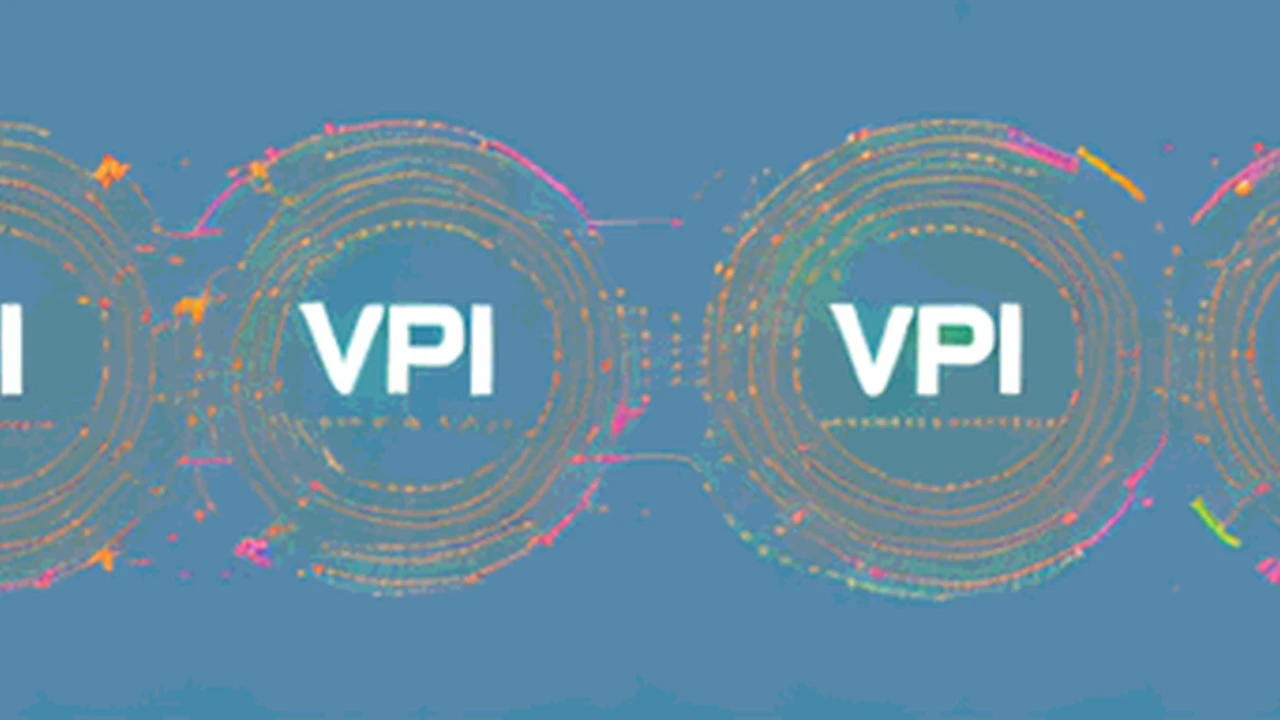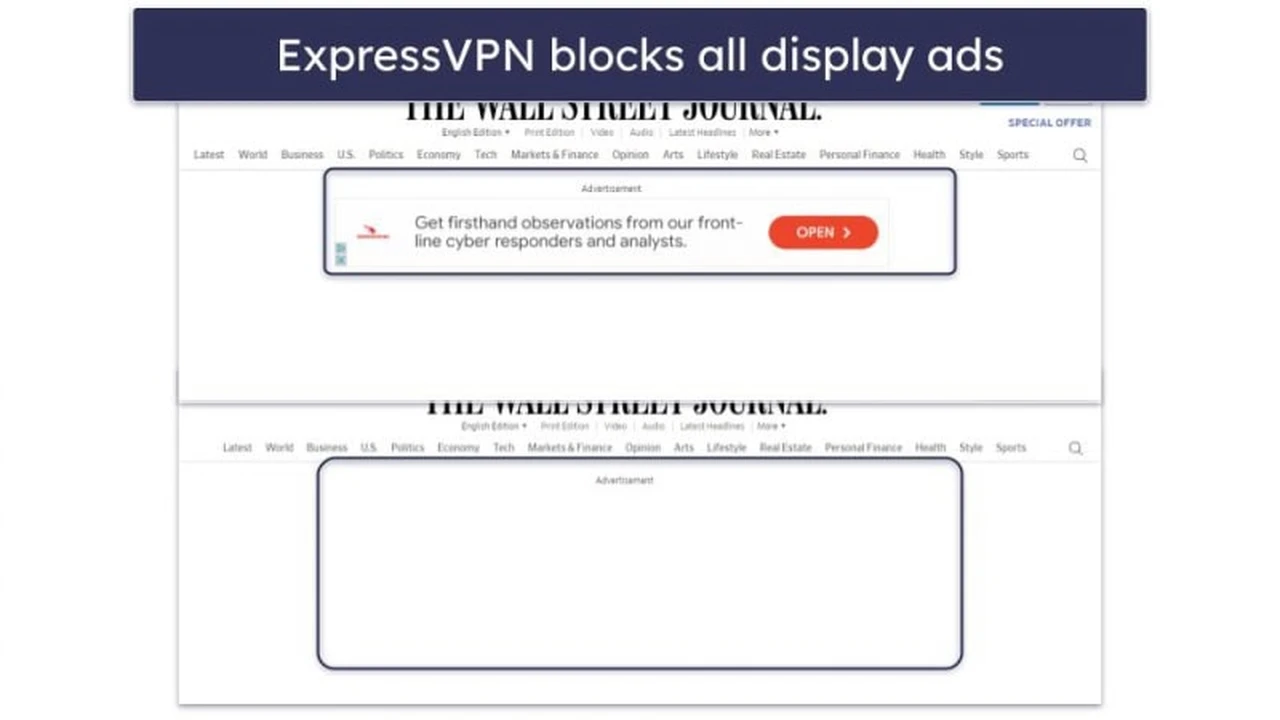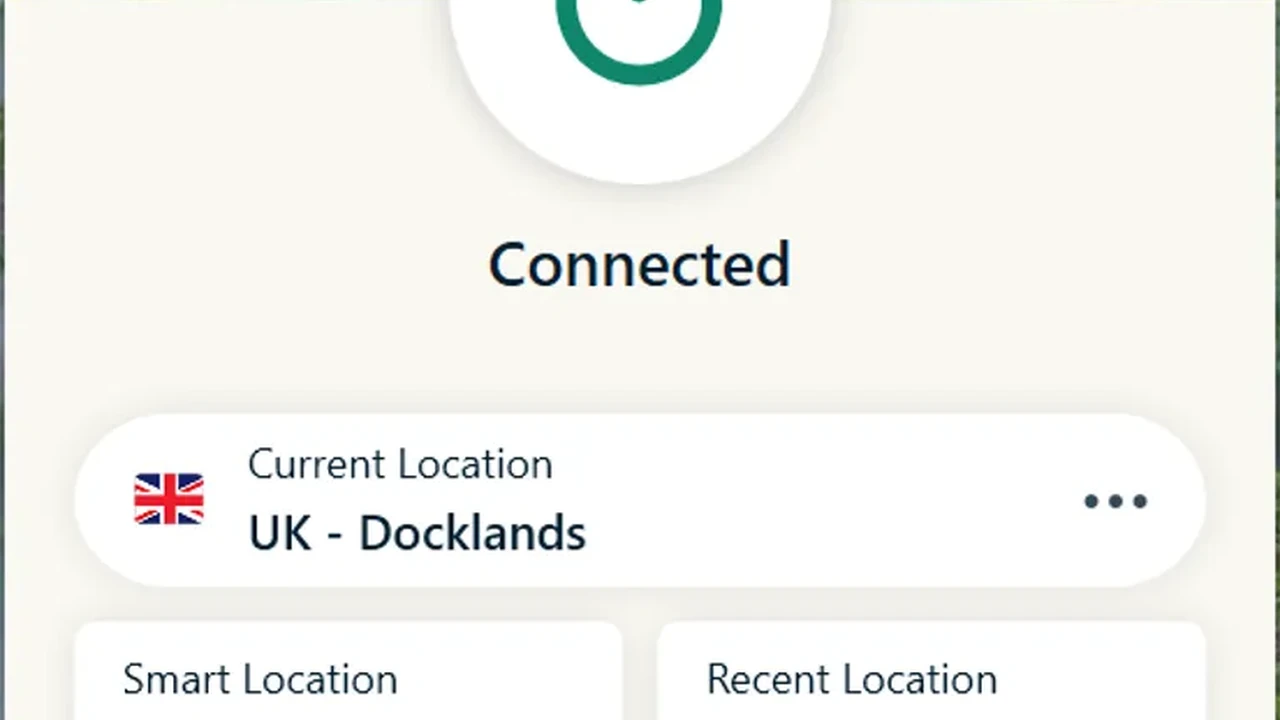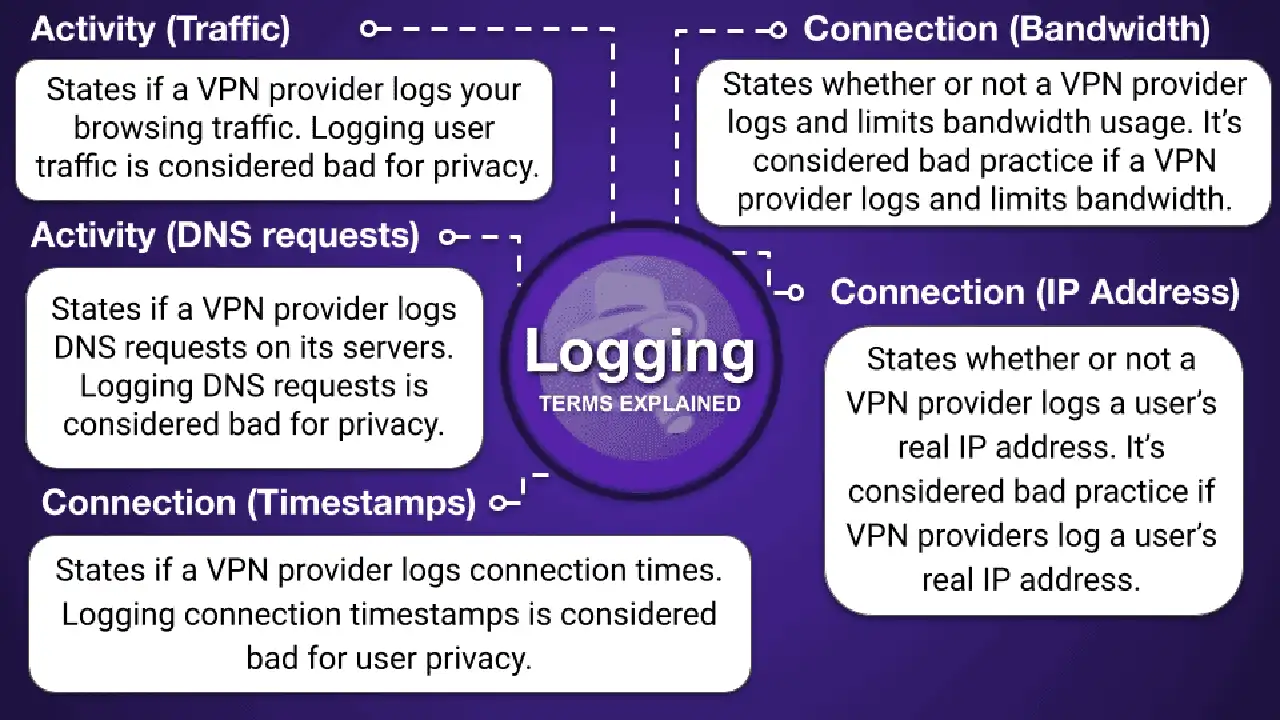Comparing VPNs for Protection Against Malware and Phishing
Discover VPNs that offer built-in protection against malware, phishing, and other online threats. Enhance your security beyond encryption.

Comparing VPNs for Protection Against Malware and Phishing
Hey there, digital explorer! In today's wild west of the internet, just having a VPN for encryption isn't always enough. We're constantly bombarded with sneaky malware trying to infect our devices and cunning phishing attempts designed to steal our personal info. It's like walking through a digital minefield! That's why more and more people are looking for VPNs that go the extra mile, offering built-in protection against these nasty online threats. We're talking about VPNs that act as your digital bodyguard, enhancing your security way beyond just encrypting your data. Let's dive in and see which VPNs are stepping up their game to keep you safe from malware and phishing.
Why You Need VPN Malware Protection and Phishing Defense
You might be thinking, 'I already have antivirus software, isn't that enough?' And while antivirus is super important, a VPN with integrated malware and phishing protection adds another crucial layer of defense. Think of it this way: your antivirus is like a guard dog at your house, but a VPN with these features is like having a security system that stops intruders before they even get to your property. These threats often come disguised as legitimate websites or downloads, and a good VPN can identify and block them before they even reach your device. This proactive approach is a game-changer for your online safety, especially when you're browsing unfamiliar sites or clicking on links you're not entirely sure about.
Understanding Malware Threats and VPN Solutions
Malware, short for malicious software, is a broad term that includes viruses, worms, Trojans, ransomware, spyware, and adware. Each type has its own nasty way of causing trouble, from corrupting your files to stealing your data or even holding your computer hostage. Traditional antivirus software scans your device for these threats, but a VPN with malware protection works differently. It often uses DNS filtering or a built-in threat detection system at the server level. This means that when you try to access a website known to host malware, the VPN blocks the connection before the malicious code can even start downloading to your device. It's like having a bouncer at the door of a dangerous club, preventing you from ever stepping inside.
Phishing Attacks and How VPNs Can Help Prevent Them
Phishing is another insidious threat where attackers try to trick you into revealing sensitive information like usernames, passwords, and credit card details. They usually do this by impersonating trusted entities, like your bank, a popular online service, or even a government agency, through fake emails, messages, or websites. While a VPN can't stop you from *receiving* a phishing email, many VPNs with advanced security features can block access to known phishing websites. If you accidentally click on a suspicious link, the VPN's built-in protection can recognize the fraudulent site and prevent you from loading it, thus safeguarding your information. This is incredibly valuable, as phishing attacks are becoming increasingly sophisticated and harder to spot with the naked eye.
Key Features to Look for in a VPN for Malware and Phishing Protection
When you're shopping for a VPN that offers these enhanced security features, there are a few specific things you'll want to keep an eye out for. Not all VPNs are created equal in this department, so knowing what to look for will help you make an informed decision.
Threat Protection DNS Filtering and Ad Blockers
Many VPNs integrate a feature often called 'Threat Protection,' 'CyberSec,' or something similar. This usually involves DNS filtering, where the VPN's DNS servers maintain a blacklist of known malicious domains, including those associated with malware distribution and phishing sites. When your device tries to resolve a domain on this blacklist, the VPN simply blocks the request, preventing you from connecting to the dangerous site. An added bonus is often an integrated ad blocker, which not only improves your browsing experience by removing annoying ads but also blocks malicious ads that can sometimes lead to malware infections (malvertising). This combination is a powerful defense against a wide range of online threats.
Automatic Blocking of Malicious Websites and Downloads
Beyond just DNS filtering, some VPNs offer more advanced real-time protection. This might involve scanning downloads for known malware signatures or actively monitoring web traffic for suspicious patterns. If a VPN can automatically block access to websites identified as malicious or prevent the download of known harmful files, that's a huge win for your security. This kind of proactive blocking means you don't even have to think about it – the VPN is working in the background to keep you safe.
Secure DNS and Leak Protection for Enhanced Security
While not directly a malware or phishing blocker, secure DNS and robust leak protection are foundational to any good security-focused VPN. If your VPN leaks your DNS requests, your ISP or other third parties could still see which websites you're trying to access, potentially exposing you to DNS-based attacks or allowing them to track your browsing. A VPN that ensures all your DNS requests are routed securely through its own encrypted servers, and that actively prevents IP and DNS leaks, adds another layer of integrity to its overall security posture. This means even if a malicious site tries to redirect your DNS, the VPN will prevent it.
Top VPNs with Integrated Malware and Phishing Protection
Alright, let's get to the good stuff! Based on their features, performance, and commitment to security, here are some of the leading VPNs that offer excellent built-in protection against malware and phishing. We'll look at their specific offerings, how they work, and what you can expect in terms of pricing.
1. NordVPN Threat Protection
NordVPN is a household name in the VPN world, and for good reason. Their 'Threat Protection' feature is one of the most comprehensive on the market. It's designed to block malicious websites, trackers, and intrusive ads. What's really cool is that it also scans files you download for malware and quarantines them if they're suspicious, even if you're not connected to a VPN server. This makes it a powerful standalone security tool in addition to being a top-tier VPN.
- Specific Features: Blocks malicious websites, removes intrusive ads, stops web trackers, and scans downloaded files for malware. It works even when the VPN is disconnected, offering continuous protection.
- How it Works: Threat Protection uses a combination of DNS filtering and real-time scanning. When you try to access a website, it checks against a regularly updated blacklist of known malicious domains. For downloads, it scans files for malware signatures before they can execute on your device.
- Use Cases: Perfect for everyday browsing, protecting against accidental clicks on phishing links, and ensuring downloads are clean. Great for users who want an all-in-one security solution without needing separate antivirus for basic web threats.
- Pricing: NordVPN offers various plans, typically starting around $3.49/month for a 2-year plan. They often have promotional deals, so keep an eye out. A 30-day money-back guarantee is standard.
- Pros: Very effective, works even when VPN is off, comprehensive protection, user-friendly interface.
- Cons: Can sometimes be overly aggressive and block legitimate sites (though you can whitelist them).
2. Surfshark CleanWeb
Surfshark is another strong contender, known for its excellent value and unlimited simultaneous connections. Their 'CleanWeb' feature is specifically designed to block ads, trackers, and malware. It's a robust tool that significantly enhances your browsing safety and speed by preventing unwanted content from loading.
- Specific Features: Blocks ads, trackers, and malware-hosting websites. It also helps save mobile data by preventing unnecessary content from loading.
- How it Works: CleanWeb operates primarily through DNS filtering. It intercepts DNS requests and blocks those associated with known malicious domains, ad servers, and tracking scripts. This happens at the VPN server level, so the malicious content never reaches your device.
- Use Cases: Ideal for users who want a cleaner, faster, and safer browsing experience. Excellent for protecting against malvertising and accidental navigation to phishing sites. Great for mobile users looking to save data.
- Pricing: Surfshark is very competitively priced, often starting around $2.29/month for a 2-year plan. They also offer a 30-day money-back guarantee.
- Pros: Very effective ad and malware blocking, unlimited devices, great value, easy to use.
- Cons: Doesn't scan downloaded files like NordVPN's Threat Protection.
3. ExpressVPN Threat Manager
ExpressVPN is often lauded for its speed and reliability, and while it doesn't have a feature as overtly named as 'Threat Protection' or 'CleanWeb,' it does offer 'Threat Manager.' This feature is designed to prevent all apps and websites on your device from communicating with a list of known malicious third-party trackers and sites. It's a more subtle but equally effective approach to enhancing your security.
- Specific Features: Blocks communication with malicious trackers and sites across all apps on your device.
- How it Works: Threat Manager works at the DNS level, preventing your device from connecting to servers known to host malware, trackers, or phishing content. It's a network-level blocker, meaning it protects all traffic routed through the VPN.
- Use Cases: Excellent for users who prioritize privacy and want to prevent their data from being sent to known malicious entities or trackers. It adds a layer of defense against phishing by blocking access to known fraudulent domains.
- Pricing: ExpressVPN is generally considered a premium VPN, with plans typically starting around $6.67/month for a 1-year plan. They also offer a 30-day money-back guarantee.
- Pros: Highly effective at blocking trackers and malicious domains, works across all apps, strong privacy focus, excellent speeds.
- Cons: Not as explicitly advertised as a 'malware blocker' as some competitors, no file scanning.
4. Proton VPN NetShield
Proton VPN, from the creators of ProtonMail, is well-regarded for its strong privacy and security stance. Their 'NetShield' feature is a powerful tool that blocks ads, trackers, and malware. It's integrated directly into their VPN service and works seamlessly to protect your browsing.
- Specific Features: Blocks ads, trackers, and malware. It's available on all Proton VPN plans, including their free tier (though with some limitations on the free version).
- How it Works: NetShield uses DNS filtering to prevent your device from connecting to domains associated with ads, trackers, and known malware. It's a server-side solution, so it protects all devices connected to the VPN.
- Use Cases: Great for users who value strong privacy and want an effective ad and malware blocker. Suitable for everyday browsing and protecting against common online threats.
- Pricing: Proton VPN offers a free plan with limited features. Paid plans start around $4.99/month for a 2-year plan, with a 30-day money-back guarantee.
- Pros: Strong privacy focus, effective ad and malware blocking, available on free plan (limited), open-source and audited.
- Cons: Free plan has speed and server limitations.
5. CyberGhost Content Blocker
CyberGhost is a user-friendly VPN with a massive server network. Their 'Content Blocker' feature is designed to block malicious websites, ads, and trackers, providing a safer and smoother browsing experience. It's easy to enable and adds a good layer of protection.
- Specific Features: Blocks malicious websites, ads, and trackers. It's a simple toggle within their application.
- How it Works: Similar to other solutions, CyberGhost's Content Blocker uses DNS filtering to prevent your device from connecting to known malicious domains and ad servers.
- Use Cases: Excellent for users who want a straightforward and effective way to block ads and protect against known malicious sites. Good for general browsing and enhancing security without complex configurations.
- Pricing: CyberGhost offers very affordable long-term plans, often starting around $2.19/month for a 2-year plan. They also provide a generous 45-day money-back guarantee.
- Pros: Very affordable, user-friendly, effective ad and malware blocking, large server network.
- Cons: Not as advanced as NordVPN's Threat Protection in terms of file scanning.
Comparing the Offerings: Which VPN is Right for You
So, with all these options, how do you pick the best one for your needs? It really boils down to what level of protection you're looking for and what your budget is. If you want the most comprehensive, all-in-one solution that even scans downloads, NordVPN's Threat Protection is probably your best bet. It's a powerhouse.
If you're looking for excellent value, unlimited devices, and solid ad/malware blocking, Surfshark's CleanWeb is a fantastic choice. It's super affordable and doesn't skimp on features.
ExpressVPN, while not explicitly marketing a 'malware blocker' in the same way, offers Threat Manager which is incredibly effective at cutting off communication with malicious entities and trackers. If speed, reliability, and a strong privacy focus are your top priorities, and you don't mind a slightly higher price tag, ExpressVPN is a premium option.
Proton VPN with NetShield is great if you're already invested in the Proton ecosystem or if you prioritize open-source transparency and strong privacy. Their free tier also gives you a taste of NetShield, which is a nice bonus.
And finally, CyberGhost offers a very user-friendly experience with effective content blocking at a very attractive price point, especially for longer subscriptions. It's a solid choice for those who want simplicity and good protection without breaking the bank.
Beyond the VPN: Holistic Security Practices
While a VPN with built-in malware and phishing protection is a fantastic addition to your security toolkit, it's important to remember that it's not a silver bullet. Think of it as one crucial layer in a multi-layered defense strategy. To truly stay safe online, you need to combine your VPN's capabilities with other smart security practices.
The Importance of Antivirus Software and Regular Updates
Even with a VPN blocking malicious sites, a dedicated antivirus program is still essential. Your antivirus scans files already on your device, detects and removes existing infections, and provides real-time protection against threats that might slip past other defenses. Make sure your antivirus software is always up-to-date, as new threats emerge daily. Similarly, keep your operating system, web browsers, and all applications updated. Software updates often include critical security patches that fix vulnerabilities attackers could exploit.
Practicing Safe Browsing Habits and Digital Hygiene
No technology can fully protect you if you're not practicing good digital hygiene. Always be skeptical of unsolicited emails, messages, or pop-ups, especially those asking for personal information or urging you to click on suspicious links. Double-check URLs before clicking, and look for 'https://' in website addresses to ensure a secure connection. Use strong, unique passwords for all your accounts, and enable two-factor authentication (2FA) wherever possible. Regularly back up your important data so that even if the worst happens, you can recover your files.
Educating Yourself on Common Phishing Scams and Social Engineering
Attackers are constantly evolving their tactics, and social engineering is a huge part of successful phishing attacks. This means they play on human psychology, using urgency, fear, or curiosity to trick you. Take some time to learn about common phishing scams – how they look, what they ask for, and the red flags to watch out for. The more you know, the harder it will be for them to trick you. Remember, if something seems too good to be true, or if an email from a 'trusted' source looks slightly off, it probably is.
Final Thoughts on VPNs for Enhanced Security
Choosing a VPN with integrated malware and phishing protection is a smart move in today's digital landscape. It adds a significant layer of defense, helping to keep you safe from a wide array of online threats that go beyond simple data interception. Whether you opt for NordVPN's comprehensive Threat Protection, Surfshark's value-packed CleanWeb, ExpressVPN's subtle but effective Threat Manager, Proton VPN's privacy-focused NetShield, or CyberGhost's user-friendly Content Blocker, you'll be significantly boosting your online security. Just remember to combine these powerful tools with good old-fashioned common sense and other essential security practices. Stay safe out there, and happy browsing!
:max_bytes(150000):strip_icc()/277019-baked-pork-chops-with-cream-of-mushroom-soup-DDMFS-beauty-4x3-BG-7505-5762b731cf30447d9cbbbbbf387beafa.jpg)






